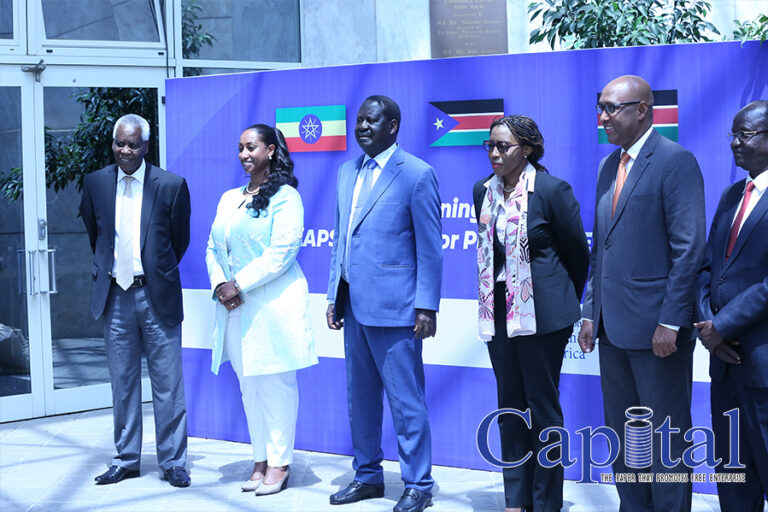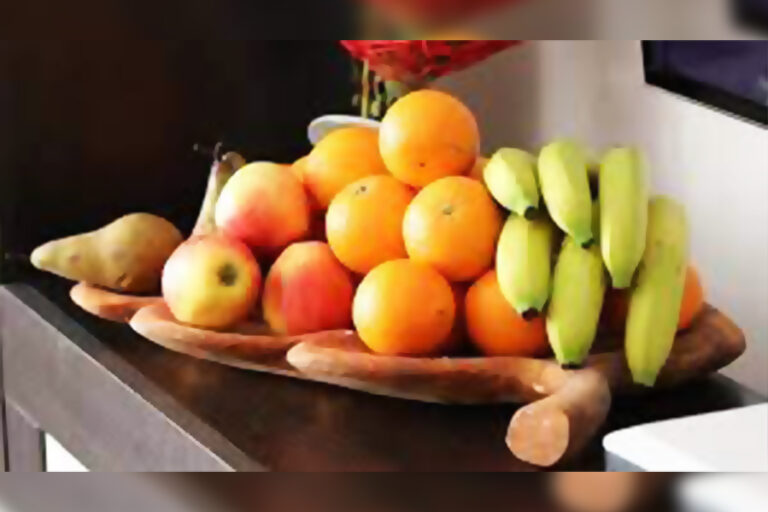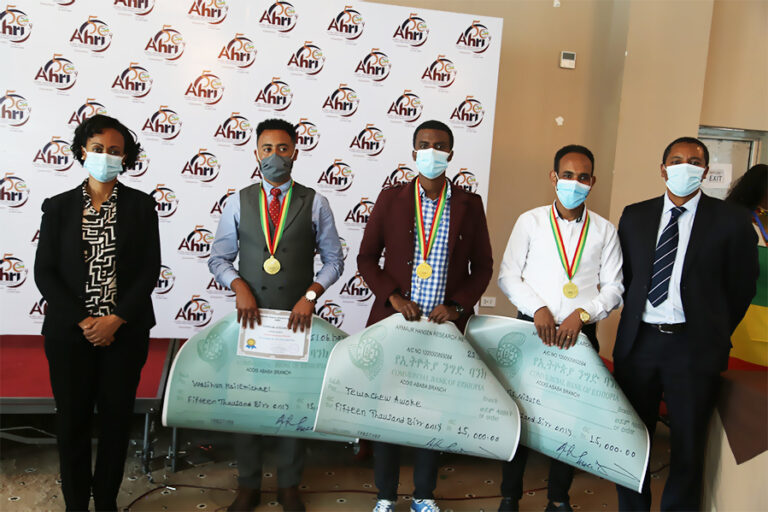Infrastructure development key to promoting trade, gender equality, peace and security
The Economic Commission for Africa (ECA) said that it will continue to support the LAPSSET Corridor Infrastructure Project linking the East African countries of Kenya, Ethiopia and South Sudan with the potential of increasing trade, peace, security and women’s development, its Executive Secretary Vera Songwe said on Monday.
In a speech at a ministerial meeting to inspect projects under the corridor in Addis Ababa, Songwe said the ECA was supporting the project, which connects the three countries by roads, rail and ports, not just as an infrastructure project but as a gender project that would see women traders benefit from lower costs of doing business that the facilities would engender.
“Women on our continent are those who trade the most, they are those who do a lot of the cross border trading,” she said, adding that it was particularly important that logistical services to ensure that they traded well were put in place.
She also expressed the hope that beyond resolving the logistical challenges to trade, the project would provide desperately needed peace and security, especially in the border communities of northern Kenya, southern Sudan, as well as Kenya and Ethiopia.
“There is clear evidence that countries that trade together and are interlinked by infrastructure are also peaceful countries that grow together and essentially benefit from peace and security together,” she said.
On the African Continental Free Trade Area (AfCFTA) which commenced trading in January, Songwe said it “cannot and will never deliver on its promise if we do not have the infrastructural logistics that can connect our peoples and our countries.”
The African Union (AU) High Representative for Infrastructure, Raila Odinga, in his own remarks, said the LAPSSET project was a “vital cog in the desired wheel of continental connectivity for trade and movement of goods, people and services” whose realization must not delay any further.
Also, Transport Minister Dagmawit Moges called on development partners and regional economic communities for support to realize the goals of the corridor, while Kenya’s Cabinet Secretary for East African Community and Regional Development Adan Mohammed said the project would play a big role in reversing the challenges posed by poor infrastructure to the region’s development.
Infrastructure development key to promoting trade, gender equality, peace and security
New report finds fruit, vegetables, protein remain out of reach for most Africans
Africa’s agri-food systems must be transformed to make healthy diets more affordable for Africans. That is the central message of a new report launched by the Food and Agriculture Organization of the United Nations (FAO), the UN Economic Commission for Africa (UNECA) and the African Union Commission (AUC).
According to the latest Africa Regional Overview of Food Security and Nutrition, Africans face some of the highest food costs when compared to other regions of a similar level of development. Nutritious foods, such as fruits, vegetables and animal proteins, are relatively expensive when compared to staples such as cereals and starchy roots, and, the report argues, some of the reasons for this are systemic.
Evidence presented in the report shows that nearly three-quarters of the African population cannot afford a healthy diet of fruits, vegetable and animal proteins, and more than half cannot afford a nutrient-adequate diet, which provides a mix of carbohydrates, protein, fats, and essential vitamins and minerals to maintain basic health. Even an energy-sufficient diet, which supplies a bare minimum of energy and little else, is out of reach for over 10 percent of the continent’s population.
“The picture that emerges is that the agri-food systems in Africa do not provide food at a cost that makes healthy diets affordable to the majority of the population, and this is reflected in the high disease burden associated with maternal and child malnutrition, high body-mass, micronutrient deficiencies and dietary risk factors,” FAO Assistant Director-General and Regional Representative for Africa Abebe Haile-Gabriel said with William Lugemwa UNECA’s Director of the Private Sector Development and Finance Division, and Josefa Sacko, African Union Commissioner for Agriculture, Rural Development, Blue Economy and Sustainable Environment in the report’s joint foreword.
“A common vision, strong political leadership and effective cross-sectoral collaboration, including the private sector, are essential to agree on trade-offs and identify and implement sustainable solutions to transform agri-food systems for healthy, affordable diets,” they said.
‘Unacceptably slow’ progress on ending malnutrition
Overall progress in meeting global nutrition targets remains unacceptably slow in Africa, according to the report. Sub-Saharan Africa is the only region in the world where the number of stunted children continues to rise. Although the prevalence of stunting is declining, it is falling only very slowly and despite progress, nearly a third of the children in sub-Saharan Africa are stunted.
Only three countries, Eswatini, Kenya and Sao Tome and Principe, are on course to meet four of the five World Health Assembly nutrition targets. Three other countries, Ghana, Lesotho and Rwanda, are on track to meet three of the targets.
The report also states that current food consumption patterns in Africa impose high health and environmental costs which are not reflected in food prices. Including these costs would add US$0.35 to each dollar spent on food in sub-Saharan Africa.
Rebalancing diets to include more plant-based foods would reduce the cost of diets and lower health and environmental costs. Compared to current average diets, diets that are more plant-based would reduce the full cost of diets, including health and environmental costs, by 11–21 percent in low-income countries.
Transforming agri-food systems for affordable, healthy diets
The findings highlight the importance of prioritizing the transformation of agri-food systems to ensure access to affordable and healthy diets for all, produced in a sustainable manner. Smart policies and interventions throughout agri-food systems are needed to raise yields, lower costs, promote nutritious foods, and reduce health and environmental costs.
Within the African context, essential interventions include increased investment in research and extension to improve yields, especially of nutritious foods, and greater efforts to adopt modern farming technologies. Production must be intensified in a sustainable manner, the report argues, along with interventions to improve land governance, empower women farmers, reduce post-harvest losses and improve market access.
Other efforts required include micronutrient fortification of staple foods, better food safety, improved maternal and child nutrition and care, nutrition education, and government policies that promote access to nutritious food through social protection, poverty reduction and income inequality.
The 19th Tore Godal prize awards
By Jonathan Ecubay
The much-anticipated 19th Tore Godal prize awards which had faced a year’s delay due to the global pandemic was finally held on July 1, 2021 at Magnolia Hotel in Addis Ababa, in the presence of Dr. Lia Tadesse Minister of Health, Dr. Dereje Duguma State Minister of Health, Prof. Afework Kassu State Minister of Science and Higher Education, AHRI Directors and other dignitaries.
The Tore Godal Award which is given in the name of the world-renowned Norwegian researcher and global health leader Dr. Tore Godal, each year recognizes outstanding young researchers for their stellar work in research.
The award saw 69 research entries up from 36 entries the preceding year, making the 19th awards the most competitive to date. The awardees of the day were Shimelis Nigusu, Tewachew Awoke and Wasihun Hailemichael, who received a medal, certificate and 15,000 birr for their remarkable research.
During the event, two books were officially inaugurated depicting the Armauer Hansen Research Institute’s (AHRI) 50-year journey and the journey and contribution of the African science giant Abraham Aseffa. The first book, written by Mesele Terecha titled ‘The Armauer Hansen Research Institute: A Biomedical and Clinical Research Institute in Ethiopia, 1969-2019’ provides a historical outlook of AHRI and documents the scientific and administrative history of the institute.
The second book, titled, ‘CELEBRATING AN AFRICAN SCIENCE GIANT: ABRAHAM ASEFFA’ is a book that pays tribute to the tenure of Abraham Aseffa who served AHRI for close to 20 years. Abraham Aseffa is well acknowledged as an icon by the institute as he has steered the institute through tough times of great change from the early days of operating as an NGO, as part of ALERT center and its current status as a government health agency. His list of achievements and testimonials from colleagues, friends, and AHRI alums are also depicted in the book.







